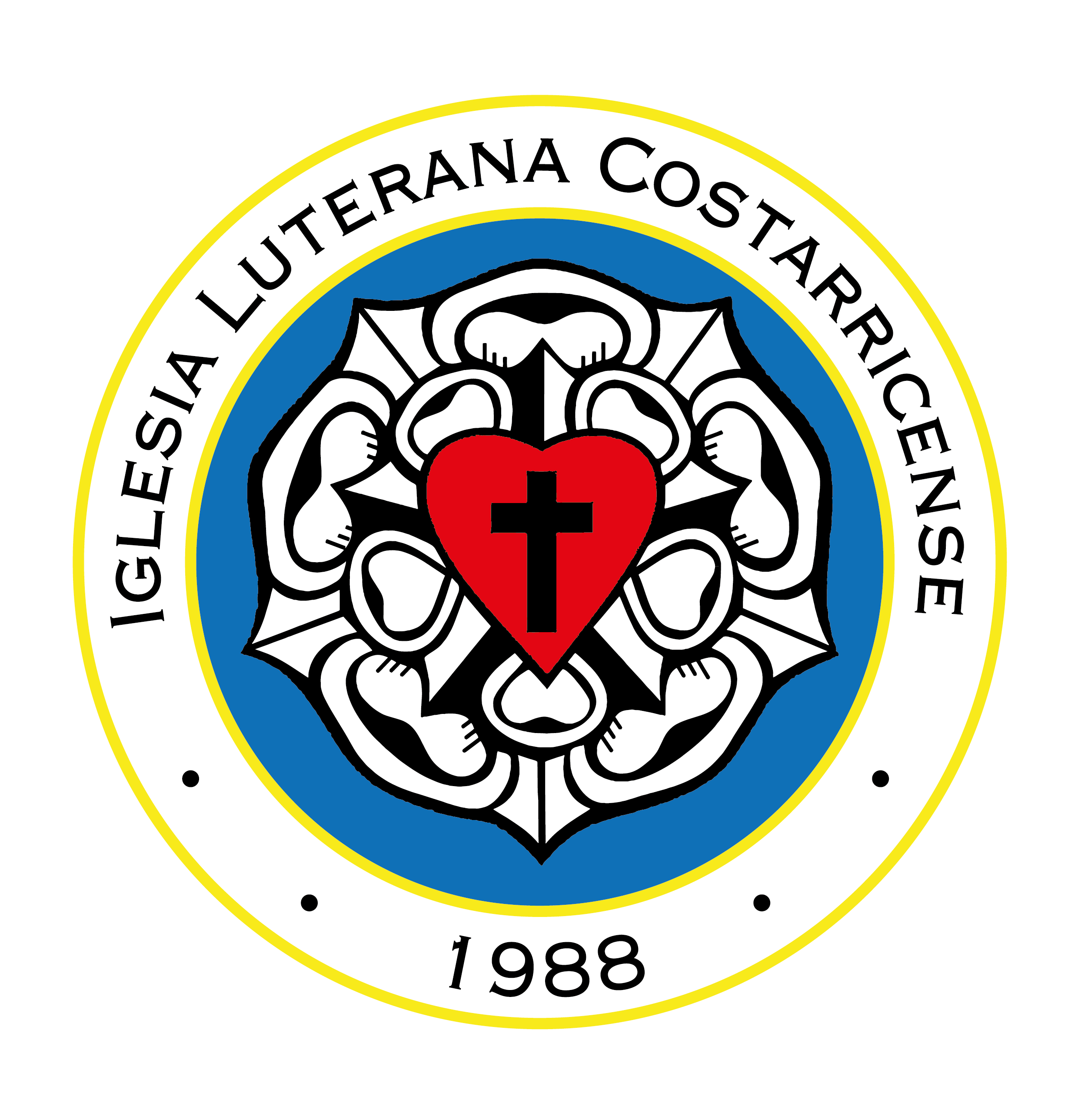On October 18th, the closing session of Organic Agriculture Workshops was held in the south region of Térraba by the indigenous communities, thanks to the support of the ACT alliance and the Costa Rican Lutheran Church.
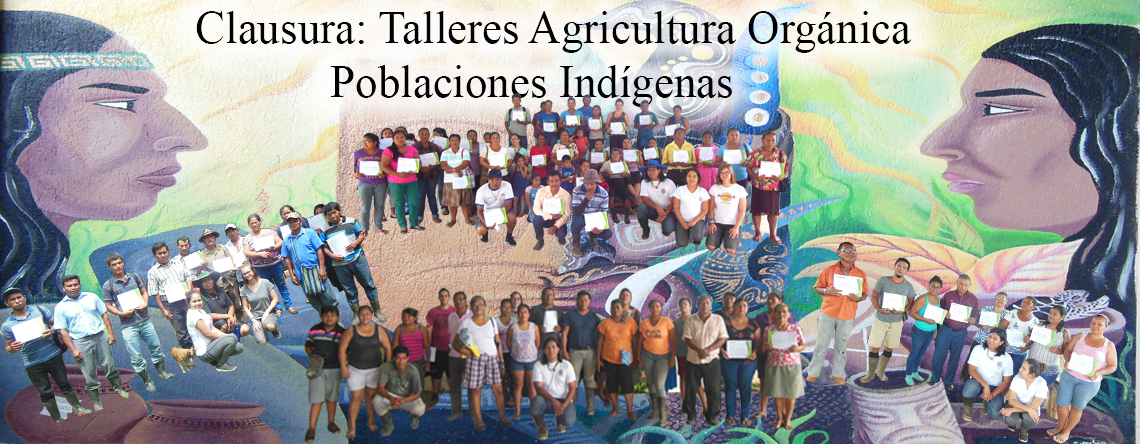
On this event, the participants received their official certificate, which validates their participation on 4 workshops with a duration of 12 hours in total during September and October of 2018. Several indigenous communities participated such as: Ujarrás Centro, San Vicente de Ujarrás, Cabagra Yuavin, Rey Curré, and San Andrés.
The participation in this workshop was remarkable due to the enormous interest coming from these indigenous communities, who felt so hopeful when it came to recovering from Nate storm and its damages.
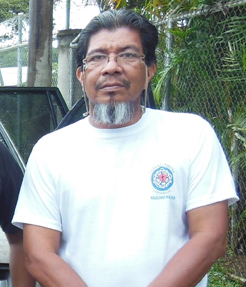 Paulino Nájera was in charge of the opening of this workshop in which he stated:
Paulino Nájera was in charge of the opening of this workshop in which he stated:
“It’s lovely to witness the enthusiasm you are bringing with you and the hope of producing basic foods with ingredients to make everything taste better (pepper, onions, cilantro). I want to congratulate you for your enthusiasm, because you have put an effort until the very end and that is what keeps us moving forward and allows us to accomplish our goals. It brings me so much joy to see people prospering. And even during difficult circumstances such as Nate storm you have remained strong and full of hope for a better tomorrow for your families. And I encourage you to keep moving forward, to the women here, because we have so many women present, to the men, and thanks to the Lutheran Church team.”
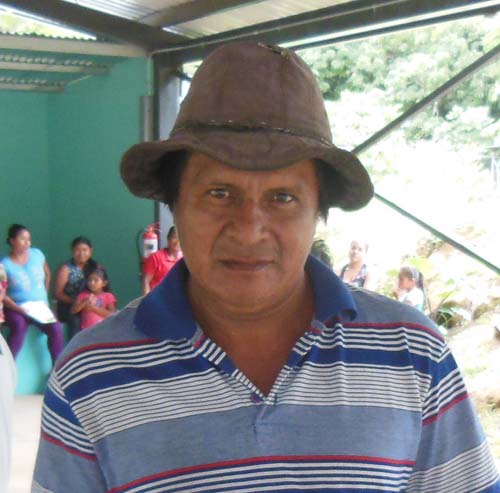 We need to highlight José Beita’s comment regarding women’s participation:
We need to highlight José Beita’s comment regarding women’s participation:
“There is such an active participation from the women in here and they even have created a committee between them. I see a lot of interest and I hope you can keep encouraging that. This lady here looks very excited and she is always looking forward to the next activity. I hope you have the initiative of organizing and work in this, which is so important for their children’s diet.”
A main objective in these workshops is to teach indigenous communities how to use bio-fertilizers, and how to avoid using chemical substances as much as possible in order to avoid environmental pollution. We also have provided agricultural tools to enhance theorical activities and motivation such as machetes, sharpening stones, rubber boots, and seeds. These tools were provided on October 12th, 13th, and 14th of 2018.
Berta Zùñiga comments on the benefits of these tools:
“Now we have taken a little more time to put the knowledge into practice because it has been raining a lot, but these workshops have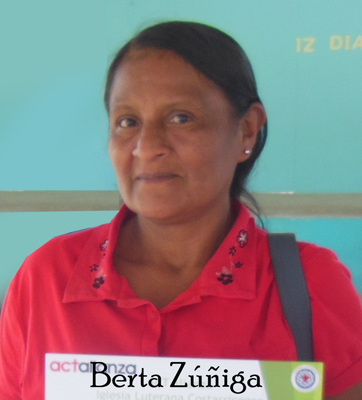 been interesting and easy to do. For me, the tools have been so helpful because I didn’t even have the money to buy them, I didn’t have beans to grow, and I was thinking of how to get the money to buy all that. I already planted all the seeds and I can already see the two little leaves. I think it’s better to use organic fertilizers instead of chemical products. I haven’t missed any workshops and I’m looking forward for more of them. I thank God so much for this and the church for taking us into account.”
been interesting and easy to do. For me, the tools have been so helpful because I didn’t even have the money to buy them, I didn’t have beans to grow, and I was thinking of how to get the money to buy all that. I already planted all the seeds and I can already see the two little leaves. I think it’s better to use organic fertilizers instead of chemical products. I haven’t missed any workshops and I’m looking forward for more of them. I thank God so much for this and the church for taking us into account.”
This last closing workshop was based fundamentally on the subject of biofertilizers which are the result of the decomposition or fermentation of organic matter dissolved in water, transforming elements that can not be used directly by plants, in easily assimilable substances. And so to replace as much as possible the chemical inputs to reduce environmental pollution through biofertilizers, such as Biol, which can be applied to all crops, especially during the growth stage.
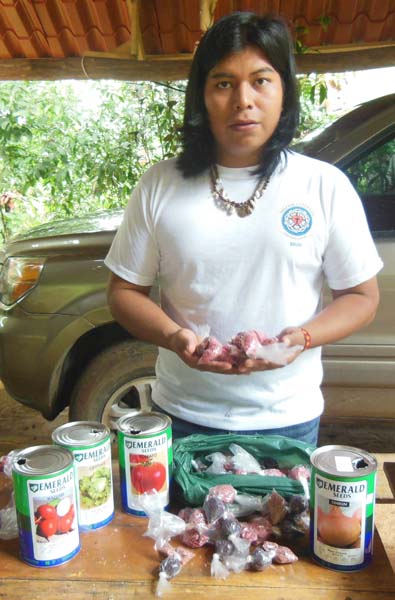 The facilitator Paolo Najera tells us: “During this last session I want to thank everyone for coming to these organic agriculture workshops and I am pleased that everyone has learned about these topics. I have also learned about this since I wasn’t very familiar with the topics and now I get to share them with other people. What you’ve got in your hands is a little manual with very basic recipes that work as a complement for everything that you’ve learned. Let’s talk about “Solidary-Based Economy”. The seeds are tiny and this does not mean that they can’t do bigger things. The seeds we share with you eventually will work so that you and your families can be fed. And if they work, you can sell them too, that is also part of our purpose. We did not come here to change what you have always been doing, but we have come here to help you improve your agricultural practices, and therefore, improve the quality of the food that you sell and consume. Because you have the right to eat quality products.”
The facilitator Paolo Najera tells us: “During this last session I want to thank everyone for coming to these organic agriculture workshops and I am pleased that everyone has learned about these topics. I have also learned about this since I wasn’t very familiar with the topics and now I get to share them with other people. What you’ve got in your hands is a little manual with very basic recipes that work as a complement for everything that you’ve learned. Let’s talk about “Solidary-Based Economy”. The seeds are tiny and this does not mean that they can’t do bigger things. The seeds we share with you eventually will work so that you and your families can be fed. And if they work, you can sell them too, that is also part of our purpose. We did not come here to change what you have always been doing, but we have come here to help you improve your agricultural practices, and therefore, improve the quality of the food that you sell and consume. Because you have the right to eat quality products.”
It is important to point out that along with the seed delivery, the workshops provided information on how to protect the seeds. We had lectures about how to control illnesses that affect fruits and vegetables (Bordeaux broth), plague control using soap aqueous solution and alcoholic garlic extract to fight aphids, mites, red spiders, and white flies.
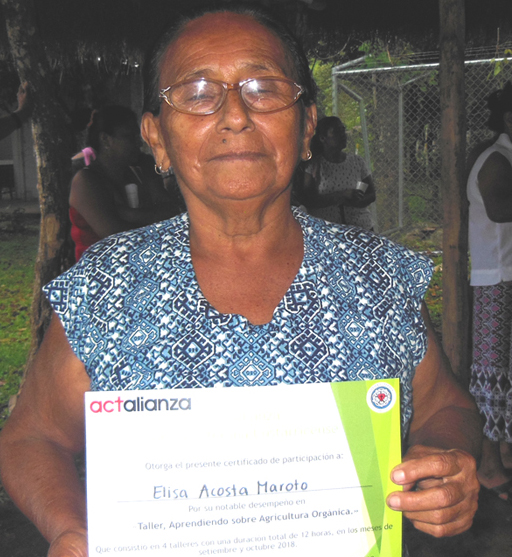 Elisa Acosta Maroto from the Cabagra community tells us how she feels about the tools and the workshops:
Elisa Acosta Maroto from the Cabagra community tells us how she feels about the tools and the workshops:
“I planted tomato seeds, pepper, and cilantro… and everything is growing. The knowledge we acquired is very nice. I knew a little bit about this because I used to grow food with my dad, but there are many things I didn’t knew. The day they gave everyone the tools I wasn’t able to come because the river didn’t let me come here. Thank you so much for these things that we need for work and sometimes we cannot buy. For example, this sharpening stone is great, one of the best. It will be nice to show what I’ve learned to my family, I kept all of the information they gave us with me so they can read them later. I told Carmen that when they come to give more workshops she has to let me know, because I haven’t been told about other events in the past, this is the first time they tell me. I really liked it and I think everyone has liked it because no one has missed a workshop and some people have come from far away.”
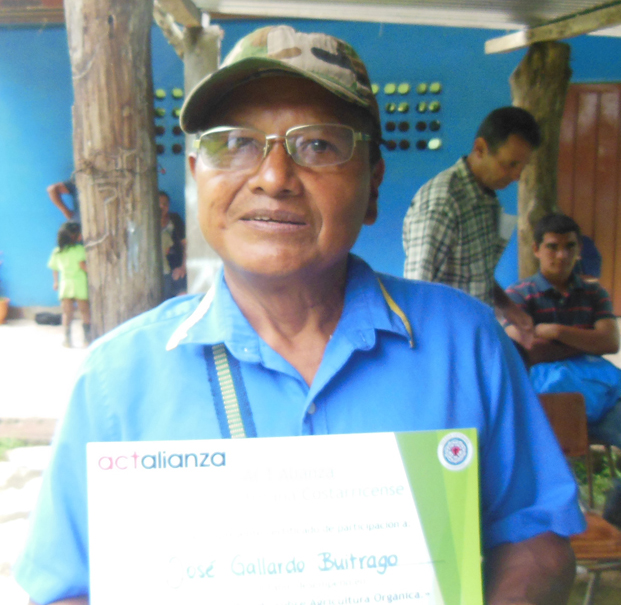 Jose Gallardo Buitrao from Yuhavi community tells us about his experience:
Jose Gallardo Buitrao from Yuhavi community tells us about his experience:
“I am from Talamanca and I grew up with organic agriculture, which has more benefits than the conventional agriculture. I like these workshops because people get to learn from you and you get to learn from people. It would be nice to do workshops specialized in other types of food, like bananas, or even one where we are taught not only the benefits of organic agriculture but the dangers of conventional agriculture. Our Ministry of Culture does not like to be criticized, even if they teach us how to poison our food, that’s why we have so many diseases. I want to thank you for your intentions of coming all the way here and teach us all of this. We must continue to keep teaching this and contributing to the environment so out children can enjoy that too.”
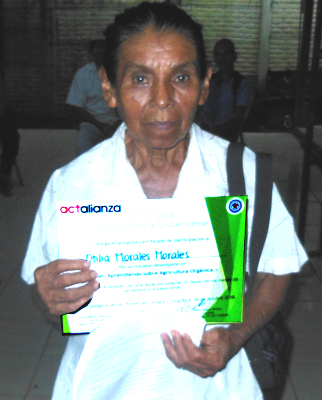 Lastly, we asked Otilia Morales Cabagra the chances of putting into practice her knowledge and she told us the following:
Lastly, we asked Otilia Morales Cabagra the chances of putting into practice her knowledge and she told us the following:
“One doesn’t usually know about what you can do with certain foods. One may have raw materials which are not hard to acquire, but because of lack of knowledge we may not take advantage of them. Even with simple things, for instance, I planted seeds but they were invaded by worms and I was told to use make some special liquid with pepper and it worked. There are many things that we don’t know that we could apply in agriculture. We are going to make the most out of what we have learned, my garden is already set up!”
